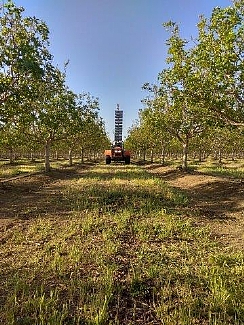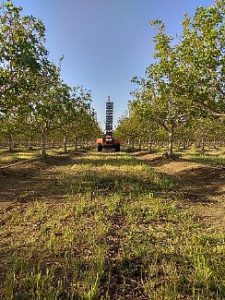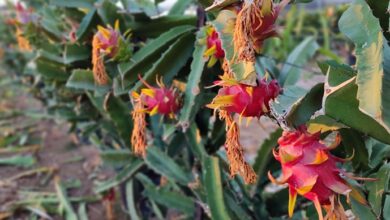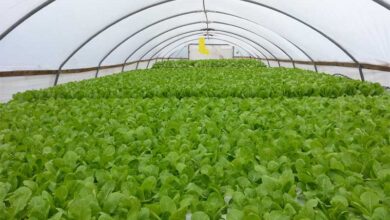International Bee Day raise global awareness of the importance of bees
New technologies to support honeybees as well as to solve pollination challenges
Keren Mimran*, Edete Precision Technologies for Agriculture

 International Bee Day has been announced to raise global awareness of the importance of bees and other insects as pollinators and their contribution to the environment. Pollination is the process of reproduction in plants, which is responsible for creating food sources such as fruits, vegetables, nuts, seeds and fodder, in addition to the proliferation of non-edible flowers, shrubs and trees. Plant reproduction is done by the transfer of pollen from the male part of the flower to the female part. Since plants are stationary, two pollination strategies have evolved: biotic pollination – by animals, mainly insects, and abiotic pollination – usually transferred by wind and some by water.
International Bee Day has been announced to raise global awareness of the importance of bees and other insects as pollinators and their contribution to the environment. Pollination is the process of reproduction in plants, which is responsible for creating food sources such as fruits, vegetables, nuts, seeds and fodder, in addition to the proliferation of non-edible flowers, shrubs and trees. Plant reproduction is done by the transfer of pollen from the male part of the flower to the female part. Since plants are stationary, two pollination strategies have evolved: biotic pollination – by animals, mainly insects, and abiotic pollination – usually transferred by wind and some by water.
There are over 20,000 species of bees in nature, of which over 1,100 are in Israel. Most species are solitary wild bees, which do not live in swarms or hives, and do not produce honey, but do pollinate as part of the collection of pollen as food for their offspring.
Very few individual species of bees are honeybees, which live in hives of tens of thousands of individuals. Documentation of hives in the service of humanity is evident in murals since ancient Egypt time.
Honey bees are the main agricultural pollinator, thanks to the mobility option of the hive’s from place to place, following the blossom seasons of various crops, and the large amount of bees in each hive. A lot of mankind’s food security depends on insects, which pollinate about 75% of our food diversity, the rest of the crops including cereals – wheat, corn and rice, our main food source ,as well as olives, grapes, nuts and more, are pollinated by the wind.
In recent years, a continuous decrease in the number and diversity of all insects in the world has been detected, entire insect populations have disappeared. This phenomenon did not miss the honeybees. The main reasons for insects loss are the rapid global spread of diseases, viruses and natural enemies, such as the Veroa mite which is a major cause of decline in bee health. Agricultural use of pesticides, insecticides as well as of fungicides and herbecides found in hives.
The decrease of natural habitat as part of an accelerated urbanization and continuous growth of agricultural land. Agricultural monocultures (intensive farming of only one crop in extensive geographical areas) required for feeding the world is causing nutritional desertification for the bees, which requires food diversity. Global warming is also affecting the life cycles of both animals and plants alike.
The very use of bees in pollination is stressful due to the long distance tracking of beehives in the dark from place to another, in countries such as the United States, Australia and Canada, as well as their concentration from all over the country to one area for pollination which is itself a catalysat of spreading diseases.
Israel has recently become a center for the development of technologies to support honeybees as well as to solve pollination challenges. Robotic sensors and hives are supposed to help beekeepers optimize and focus their activity, environmentally friendly pesticides are developed, along with treatments for pollinator diseases and even artificially made honey,all of which are supposed to reduce the pressure on the bee population and their immune system.
Another approach to solving pollination problems and creating food security, is the development of artificial pollination technology, as a supplement or a substitute for natural pollinators and wind pollination. Controlled mechanical pollination ensures and increases yields and contributes to the farmers returns. Optimal mechanical pollination is based on a pollen bank of high-quality pollen stored for several years, allowing a matching of the best genetic fit pollen for each variety and preventing problems of desynchronization of different cultivars or male and female bloom. The combination of artificial pollination services with lower packing rates of beehives per plot, adds to the increase of yields due to the mechanical dispersal of best genetic fit pollen on the flowers, that allows any visiting pollinator to pollinate and perform fertilization.
*The writer is a Founder and VP of Business Development and Marketing at Edete Precision Technologies for Agriculture.
For more info you can contact Keren Mimran: keren@edetepta.com




